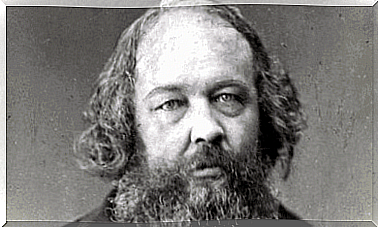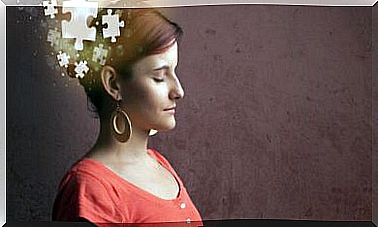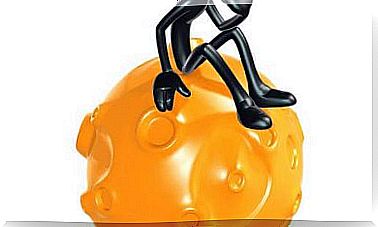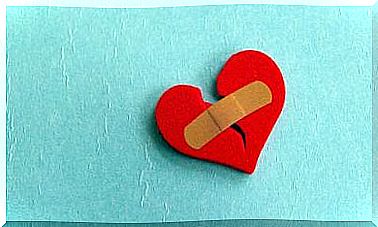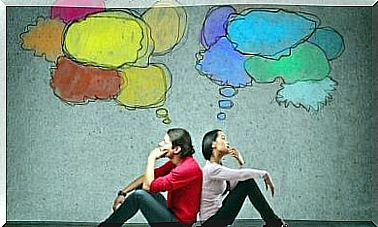Recognizing Mistakes Gives Us The Opportunity To Learn From Them

Confucius said that “to make a mistake and not correct it is another mistake”. Following this reasoning, is it true that we fail to learn from our mistakes by denying them? In other words, is acknowledging mistakes the first step in repairing the consequences of what we’ve done?
In the end, when we say the famous phrase “it wasn’t me,” which in many cases involves an obvious denial of our possible responsibility, aren’t we trying to justify a mistake? And isn’t justifying it a way of not acknowledging something we’ve done wrong? So, after all, wouldn’t we be facing a denial?
What happens when denying an error?
In other words, by not saying “it’s my fault” in the face of our mistakes, what we often try to do is create a distance between what happened and its consequences. However, it is also true that this same distance makes it difficult to learn from what happened. This rules out the possibility of reviewing the process and identifying flaws.

On the other hand, this distance can also make us breathe a sigh of relief at first. A relief that will turn into anxiety, if we have to face the same challenge again, when we start pulling our hair for not having sufficient means to correct our needs.
For example, if the department of the company we work for has to communicate with a country that speaks another language and we, as general managers, do not assume that there must be someone (or ourselves) who is in a position to make this communication, it is difficult we will assume this as our responsibility, it will hardly be communicated on that occasion and it will hardly be done on subsequent occasions.
In addition to making it impossible for the future, renouncing the task of exploring our flaws, for not recognizing them, is an attitude that translates into an obstacle to self-knowledge. By renouncing this process, we also refuse to accept responsibility for the successes that have occurred, thus ignoring our enhanced capabilities and preventing us from improving them.
Not recognizing mistakes prevents us from learning from them
At this point, it is worth recalling a study carried out as a team among researchers from the Universities of California and New York. In it, it was revealed that the fact that we do not admit our own mistakes is related to our personality, and this diminishes our potential for growth.
To reach these conclusions, millions of profiles were analyzed. The researchers tried to identify the dominant personality types according to the participants’ reactions to errors.
Definitely, the study revealed curious results. It is estimated that 70% of the population can be neatly classified into three large groups according to their reactions to the error:
It’s someone else’s fault
A phrase so widespread among children, the classic “it wasn’t me”, continues to be used by a large number of adults. That is, when they make a mistake, they decide to ignore their responsibilities and assign it to a second person.

The truth is, by blaming others for their own mistakes, they are somehow denying those mistakes. Thus, because they do not have the maturity to recognize them, they also do not have the maturity to improve their own qualitative inner knowledge . These people tend to opt for victimistic attitudes, incapable of taking the blame, and without constructive criteria for what happened.
nothing happened here
Another group of people is included among those who don’t blame the other, but who don’t see any mistakes either. In other words, no matter how much someone shows them proof, they are unable to recognize mistakes.
So this group of people will deny about all things having done something wrong. They are not able to deal with guilt directly, as they do not see it. That is, for them it is impossible to learn from something that does not exist, or that they are not directly willing to recognize under any circumstances.
Taking responsibility beyond your own
Learning from our mistakes requires admitting that we’ve failed, and saying phrases like “it was my fault.” Fortunately, another large part of the population is able to recognize that they were wrong, and so they are willing to correct, repair, amend and improve.
However, we need to be careful, as we sometimes meet people with an attitude that is at the other extreme, taking on their own responsibility and that of others as well. Therefore, the resources they can allocate for repair are many and the punishment they can impose on themselves for the errors attributed, being proportional to this attribution, can also be very large.

That said, making mistakes is human, but so is recognizing mistakes and learning from them rather than denying them. In fact, it’s an excellent opportunity to improve and get to know each other better. It doesn’t mean that we have to spend the day making mistakes, but if the opportunity arises, don’t waste it by denying everything.
